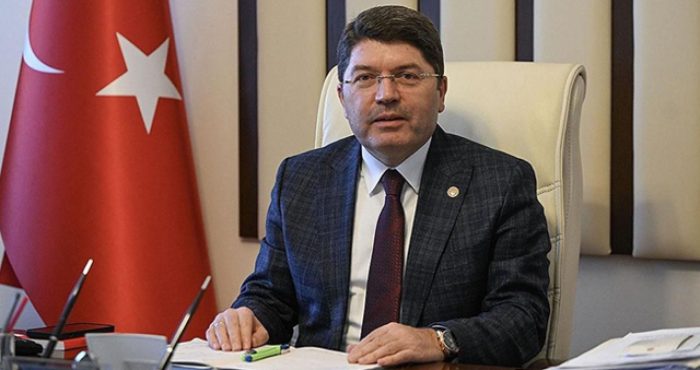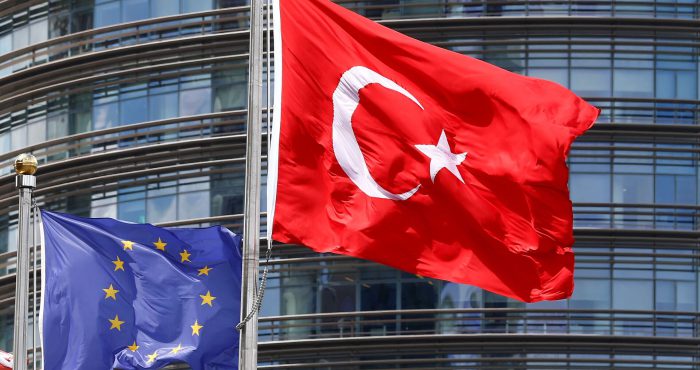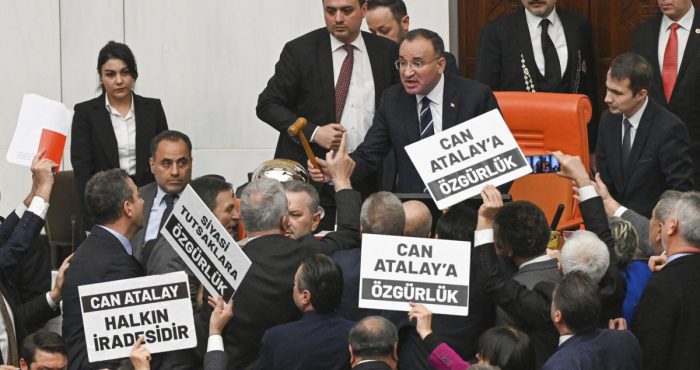I find odd the remarks made about TÜSİAD by President Recep Tayyip Erdoğan to the new TÜSİAD president Orhan Turan: “You can’t lecture us, you are an apprentice, you haven’t even become a journeyman. Know your place”, and “TÜSİAD should never knock on the door of this government”—a very effective sanction for the business world.
The business world already practices self-censorship and avoids criticizing the government due to the risk of being reprimanded, being subjected to tax inspections, seeing the administration and other areas of their work disrupted and other similar threats. The closing of the state door means that the business world will not be able to raise even ordinary problems and ask for solutions.
Executive appointment: lobbying exists, but there is no law
In Turkey, there are no rules whatsoever regulating who, how and where members of the legislative and judicial branches, the president, ministers, and senior civil servants can meet, or how these meetings are reported and monitored.
No record is kept of such conversations, nor are the participants accountable to anyone for what they have discussed and with whom. Moreover, there is no management culture in the bureaucratic tradition of responding to letters and calls, or, even if a response is given, of providing any justification. This lack of response or justification would be considered shameful in everyday life.
Obtaining an appointment with top politicians and senior public officials in decision-making positions, including the presidents of the Constitutional Court, the Court of Cassation, the Council of State and the Supreme Electoral Council (YSK), is just as difficult and often impossible. Money does not grow on trees, after all; appointments are given only to whomever they deem fit.
A similar situation exists in the parliament. Although members of parliament should be involved in drafting legislation, there are no transparent and accountable mechanisms for civil society organizations to participate in committees without personal relationships or lobbyist support. Many reputable businesspeople and well-funded NGOs working to promote parts of the business sector pay huge fees to lobbyists in order to obtain appointments with executives. Lobbying, which in some cases can be a matter of national security, is regulated by no law, no rules, and no code of ethics and morality that must be adhered to.
With or without TÜSİAD
Both the ruling party and the opposition always consult with TÜSİAD. The reason is that, with its dozens of commissions, specialized working groups and an army of more than 3,000 volunteers, TÜSİAD develops solutions to the problems and needs of the country. It is for this reason that TÜSİAD is the business NGO that the government meets with most frequently, and the first NGO that newly appointed ministers meet with.
Indeed, following the president’s promise of “economy, law and democracy” in November 2020, their meeting with TÜSİAD was the first stop made by the minister of treasury and finance and the minister of justice with the business community. Following this meeting at which this promise was made, which I personally attended, an extensive list of concrete recommendations was submitted to the ministries under the joint signature of the Better Justice Association, the Turkish Enterprise and Business Confederation (TÜRKONFED), and TÜSİAD.
Making the president of TÜSİAD an apprentice
TÜSİAD can be criticized in many ways. One can—of course—ask what TÜSİAD is, whether it is an interest group, a merchants’ association, a political party-like organization or a think tank as it claims to be. But TÜSİAD is free to be one or more of these and behave as it wishes.
The limits of the TÜSİAD president are determined by the relevant statute of the association. Only TÜSİAD members may criticize the president with regard to whether or not any statement he has made is over the line.
Orhan Turan is not an apprentice but an experienced, master civil society activist. He has about 30 years of NGO experience. Prior to TÜSİAD, he was the president of TÜRKONFED for about five years. He is intimately familiar with the problems of the business world.
Turan is an opinion leader who knows that Turkey’s most fundamental problem is middle democracy, which stems from the failures of the judiciary, the rule of law and justice in representation. He knows well that the management of the state in compliance with scientific principles, law and accountability is a precondition for the success of the business world and for increasing the welfare of the people. He is a citizen who is concerned about national issues and works hard to solve them.
From living on the father’s welfare to promoting service
How is it that anyone could regard the state as having absolute power in this context? How is it that the state can assert the right to close its door to businesspeople who say something that it doesn’t like?
My words are not only for the ruling party, but for all politicians, including the ruling party and the opposition: The state is not the property of any one father figure; it belongs to everyone. Immediately establish and enact a transparent code of conduct governing public officials’ meetings with citizens. Abandon the notion that the people are the subjects of those in power and should instead promote politicians to the position of servants of the people.




